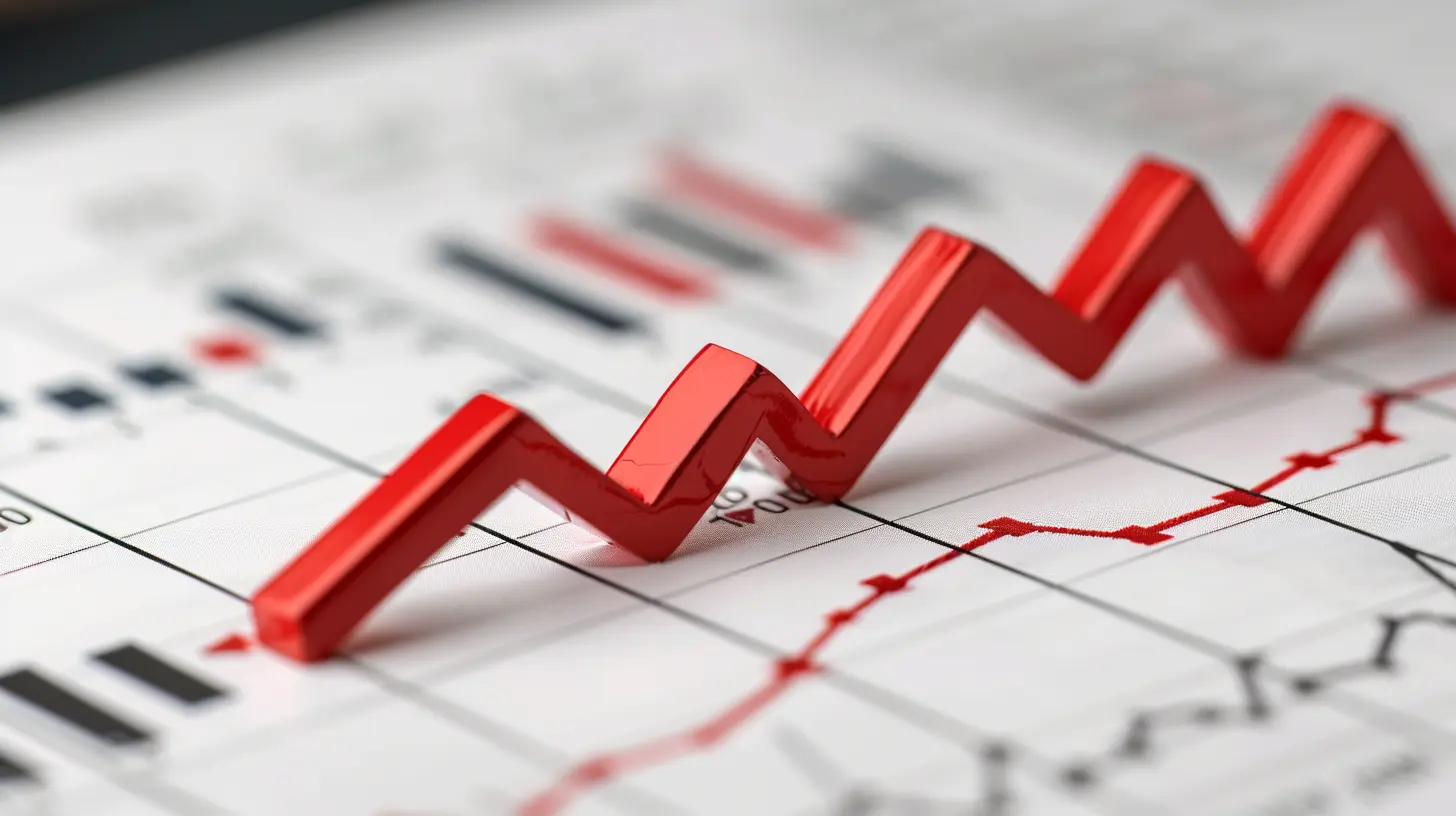The Importance of Corporate Earnings as an Economic Indicator
12 November 2025
When it comes to understanding the health of the overall economy, you’ll hear a lot of buzzwords thrown around—GDP, inflation, interest rates, and, of course, the stock market. But one key metric that often gets overlooked, especially by those outside the finance bubble, is corporate earnings.
So why should you care? Well, corporate earnings are kind of like the report card for businesses. Just like a student's grades tell you how they’re performing in school, earnings tell you how well companies—the lifeblood of the economy—are doing. And when companies are doing well, it usually means the economy is humming along nicely. When they aren’t? It’s often a sign of trouble ahead.
Let’s unpack this concept in more detail. Stick with me—it’s not as boring as it sounds (promise)!
What Are Corporate Earnings, Anyway?
Before we dive in, let’s get the basics down. Corporate earnings refer to a company’s net profits after all expenses, taxes, and costs have been subtracted from its total revenue. Essentially, it’s the bottom line.You’ve probably heard the acronym “EPS,” or earnings per share. That’s a common way to measure a company’s profitability—divide the total earnings by the number of outstanding shares. Investors and analysts obsess over these numbers every quarter. Why? Because they tell us how well a company is managing its business and whether it’s growing, stagnating, or shrinking.
Pretty simple, right? But the implications of these earnings stretch far beyond just Wall Street.
Corporate Earnings: The Pulse of Business Health
Imagine you're a doctor and the global economy is your patient. One of the first vital signs you check? Corporate earnings.When companies report strong earnings, it’s usually because:
- Consumers are spending money
- Businesses are investing and expanding
- Supply chains are functioning well
- Employment rates are solid
In other words, corporate earnings roll up many different elements of economic health into one number. That’s incredibly useful because it saves analysts (and investors) the trouble of having to dig through mountains of data just to get a feel for how things are going.
On the flip side, when earnings fall short, it could indicate that something’s not right. Maybe costs are rising due to inflation, or perhaps demand is softening because consumers are tightening their belts. Either way, it's a red flag worth noticing.
How Corporate Earnings Drive the Stock Market
Let’s face it—the stock market might seem like a casino half the time. But over the long haul, it’s heavily influenced by corporate earnings.Think about it: when you buy a stock, you're buying a tiny piece of a company. If that company makes more money, your slice of the pie becomes more valuable. If earnings decline, so does the value of your investment.
That’s why earnings season (the few-week period each quarter when companies report their financials) can be so dramatic. Stocks can swing wildly based on whether earnings beat, meet, or miss expectations. A surprise earnings result? The market reacts instantly.
But here’s the kicker—stock prices often move ahead of economic data. That means if corporate earnings start to rise or fall, investors take that as a cue about where the economy might be heading. Essentially, earnings are like the early-warning radar on a ship—they help us steer clear of potential icebergs before it’s too late.
A Real-World Example (Or Two)
Let’s time travel for a second—back to the 2008 financial crisis.In the years leading up to it, corporate earnings were steadily rising. But by late 2007 and early 2008, cracks began to show. Financial companies started posting losses, and other sectors followed suit. Those shaky earnings were a sign that trouble was brewing. Soon after? The economy hit a wall.
Fast forward to the Covid-19 pandemic. Corporate earnings plummeted in early 2020 as lockdowns froze large swaths of the economy. But by late 2020 and into 2021, companies like Amazon, Microsoft, and Apple posted record profits—driven by digital acceleration and work-from-home trends. Those strong earnings gave the market a boost and helped fuel an economic rebound.
In both cases, earnings provided a sneak peek into the state of the economy—much earlier than government data or official statements.
Earnings and Employment: A Tight Connection
Here’s something you might not have considered: when companies make money, they tend to hire more people. And when they struggle? Layoffs usually aren’t far behind.Strong earnings often mean businesses can afford to expand, invest in new projects, and bring on additional staff. That spells good news for job seekers and the overall labor market. On the other hand, when profits take a hit, companies often cut costs—and the payroll budget is usually the first place they look.
So if you’re wondering whether the job market will tighten or loosen up in the coming months, take a peek at corporate earnings. They're like a crystal ball for employment trends.
The Domino Effect Across Industries
Corporate earnings don’t exist in a vacuum. When a major company posts strong results, it can lift entire sectors—or drag them down.For instance, if big banks report robust earnings, it might signal healthy borrowing and lending. That boosts confidence in the financial sector. If retail giants like Walmart or Target show weak profits, it may suggest consumers are cutting back—which could ripple out to manufacturers, suppliers, and even transportation companies.
In this way, earnings reports create a chain reaction. Each one adds a puzzle piece to the bigger picture of economic health.
Why Analysts Obsess Over Earnings Guidance
It’s not just about what companies have already earned—it’s also about what they expect to earn in the future. That’s where earnings guidance comes into play.When a company projects optimistic earnings growth for the next quarter or year, it sends an encouraging signal to the market. Investors get excited. Stocks go up. Confidence builds.
But if a company issues a gloomy forecast? That can spook the market—even if their current profits were solid. It’s like planning a road trip only to be told there’s a storm ahead. You might still go, but you’ll probably be a bit more cautious.
This kind of forward-looking analysis makes corporate earnings an invaluable leading indicator. They give you insight into how companies expect the economy to perform down the line—not just how it’s doing today.
Limitations of Corporate Earnings as an Indicator
Okay, let’s be real for a second. Corporate earnings are incredibly useful—but they’re not perfect.For one, earnings can be influenced by accounting tricks. Companies might delay expenses or accelerate revenue recognition to hit targets. This kind of creative accounting doesn’t always reflect what’s really going on.
Also, earnings are backward-looking. Even though guidance helps, the actual earnings are based on what already happened. So if a crisis hits suddenly (like a war or pandemic), past profits won’t tell you much about future damage.
Lastly, earnings only reflect the corporate world. They don’t capture what’s going on with small businesses, the self-employed, or the gig economy—and those are big chunks of modern economies.
So while corporate earnings are a powerful tool, they shouldn’t be your only one.
Final Thoughts: Why You Should Pay Attention
Let’s wrap this up.It’s easy to get lost in the sea of economic data out there. But corporate earnings cut through the noise. They offer a clear, concise signal of how the business world is doing—and, by extension, how the broader economy is likely to go.
Even if you’re not an investor, earnings still matter. They shape job markets, consumer sentiment, and even government policy. So next time you hear about earnings season, don’t tune out. Instead, listen in—it might just give you a head start on what’s coming next.
It’s like checking the weather before you leave the house. You don't always need an umbrella—but it’s better to know if you should bring one.
Quick Recap
- Corporate earnings = company profits.- They reflect how businesses (and the economy) are doing.
- Rising earnings? Usually a sign of a strong economy.
- Falling earnings? Often a warning light.
- They impact jobs, investment, and stock prices.
- They offer forward-looking guidance into economic trends.
- Not perfect—but essential in any economic toolkit.
all images in this post were generated using AI tools
Category:
Economic IndicatorsAuthor:

Knight Barrett
Discussion
rate this article
1 comments
Damian McLaury
Great insights! Corporate earnings truly shape our economy.
November 13, 2025 at 3:40 AM

Knight Barrett
Thank you! I'm glad you found the insights valuable. Corporate earnings are indeed a key driver of economic health.


